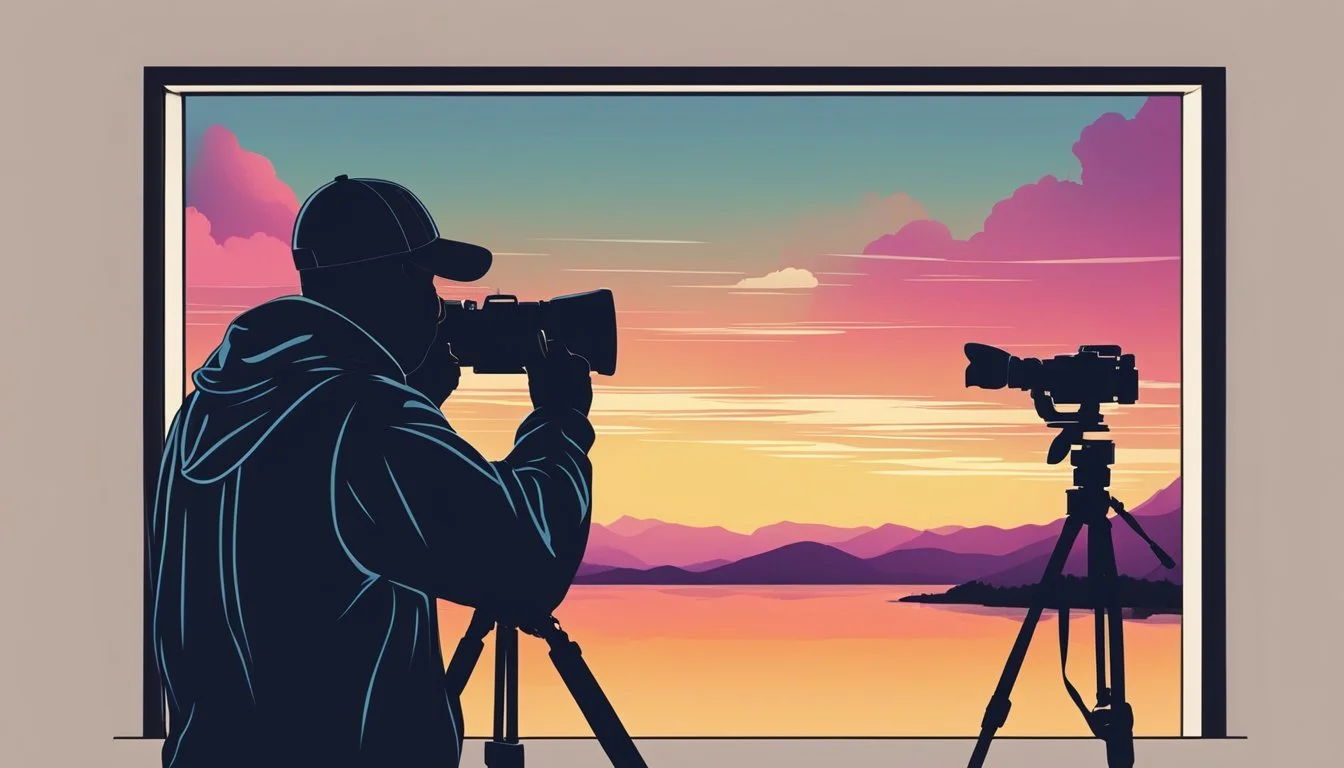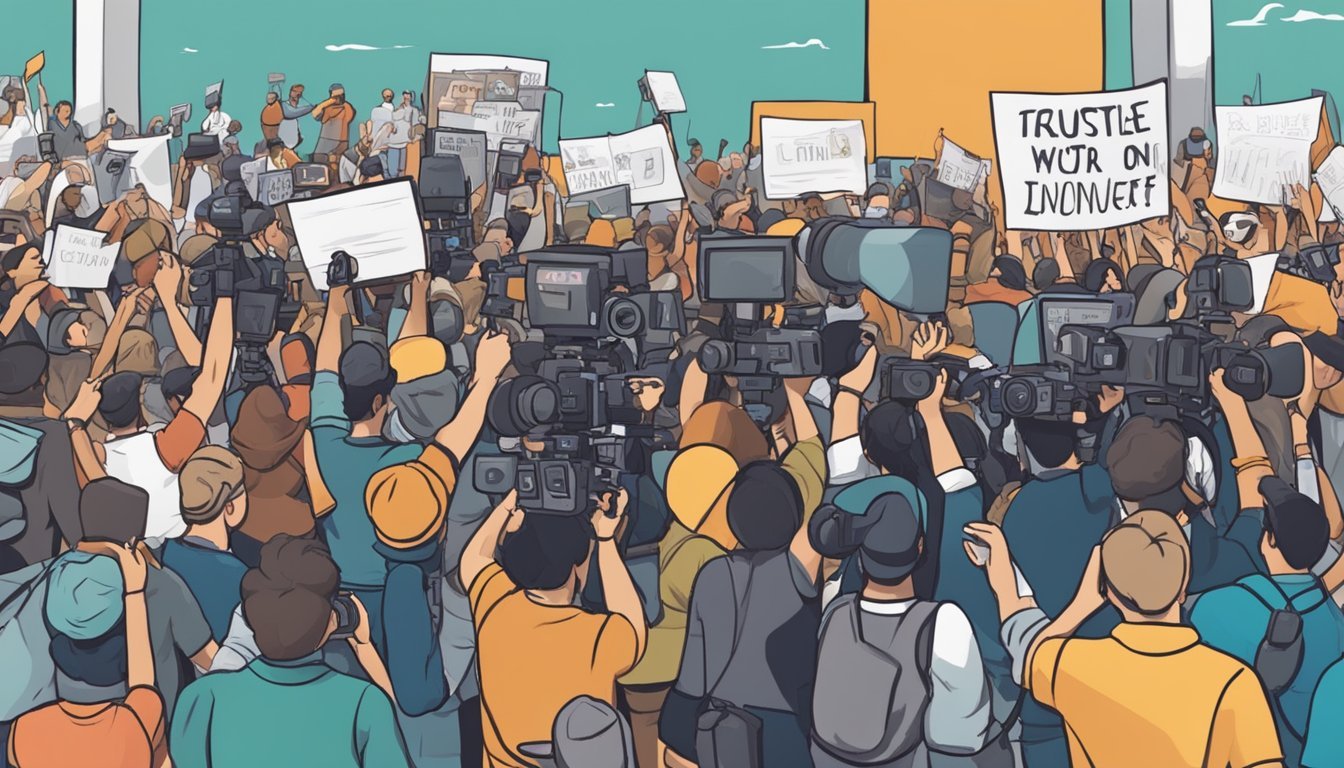Exploring the World of Documentaries on Max
Exploring the Life of a Hollywood Legend
Max offers a treasure trove of compelling documentaries that bring real lives and actual events into sharp focus. From inspiring biopics to slice-of-life features, the streaming platform boasts a diverse collection that caters to various interests and tastes. Max currently hosts over 25 top-rated documentaries, covering subjects ranging from music icons and sports legends to true crime investigations and social justice issues.
The platform's documentary lineup includes critically acclaimed titles like "All the Beauty and the Bloodshed" and "Hoop Dreams," which provide intimate glimpses into extraordinary lives and societal challenges. Music enthusiasts can explore the life of Tina Turner in a new documentary that charts her rise to fame, personal struggles, and triumphant comeback in the 1980s. Sports fans will find engaging content such as the documentary following the U.S. Women's National Soccer Team's fight for equal pay.
Max's true crime offerings delve into compelling cases, with documentaries like "Great Photo, Lovely Life: Facing a Family's Secrets" tackling sensitive subjects with care and insight. The platform's commitment to quality documentaries ensures that viewers have access to thought-provoking, informative, and entertaining content that sheds light on the human experience in all its complexity.
The Art of Documentary Filmmaking
Documentary filmmaking blends creativity with reality to capture truth and provoke thought. This unique art form has evolved over decades, employing various techniques while grappling with ethical considerations.
Defining the Genre
Documentaries are non-fiction films that aim to document reality. They often explore social issues, historical events, or personal stories. Unlike scripted films, documentaries rely on real people, places, and events to tell their stories.
Directors like D.A. Pennebaker pioneered observational techniques, allowing events to unfold naturally before the camera. This approach, known as cinéma vérité, became a hallmark of documentary filmmaking.
Documentaries can take many forms, from investigative exposés to character-driven narratives. The genre's flexibility allows filmmakers to tackle diverse subjects and experiment with storytelling methods.
Evolution and Techniques
Documentary techniques have evolved significantly since the genre's inception. Early documentaries often used voice-over narration and staged scenes. Modern filmmakers employ a wider range of tools.
Interviews form the backbone of many documentaries, providing first-hand accounts and expert opinions. Archival footage and photographs help illustrate historical events and add visual interest.
Laura Poitras, known for her work on political documentaries, often uses a fly-on-the-wall approach. This technique immerses viewers in the subject's world, creating a sense of immediacy and authenticity.
Ethical Considerations
Documentary filmmakers face unique ethical challenges. They must balance their artistic vision with a responsibility to represent their subjects fairly and accurately.
Consent is a crucial issue. Filmmakers must ensure participants understand how their contributions will be used. This becomes especially complex when dealing with vulnerable individuals or sensitive topics.
The editing process raises additional ethical questions. Filmmakers must decide how to present information without distorting the truth or misleading viewers. They often grapple with the line between objectivity and advocacy.
Transparency about methods and funding sources is increasingly important. Audiences expect documentaries to disclose any potential conflicts of interest or biases that may influence the film's perspective.
Iconic Documentary Filmmakers
Documentary filmmaking has been shaped by visionaries who push the boundaries of storytelling and shed light on important issues. These filmmakers have left an indelible mark on the genre through their innovative techniques and compelling narratives.
Pioneers in the Field
Steve James emerged as a prominent figure with his 1994 film "Hoop Dreams." The documentary followed two African American high school students in Chicago, offering a poignant look at race, class, and the American dream. James's observational style and long-term commitment to his subjects set a new standard for documentary filmmaking.
Rob Reiner, though better known for his fictional works, made significant contributions to documentaries. His 2007 film "The Bucket List" blurred the lines between fiction and documentary, sparking discussions about the nature of truth in filmmaking.
Andrew Jarecki's "Capturing the Friedmans" (2003) revolutionized the use of home video footage in documentaries. The film's exploration of a family's unraveling amid allegations of sexual abuse demonstrated the power of personal archives in storytelling.
Contemporary Voices
Laura Poitras gained international recognition for her work on government surveillance. Her 2014 film "Citizenfour," documenting Edward Snowden's NSA revelations, won an Academy Award and redefined political documentaries for the digital age.
Nan Goldin, renowned photographer turned filmmaker, brought her unflinching gaze to "All the Beauty and the Bloodshed" (2022). The film interweaves her personal story with her activism against the Sackler family, offering a powerful critique of the opioid crisis.
Daniel Roher's "Navalny" (2022) provided an intimate look at Russian opposition leader Alexei Navalny. The film's real-time investigation of Navalny's poisoning showcased the potential of documentaries to capture history as it unfolds.
Laurent Bouzereau has become a master of the behind-the-scenes documentary. His work on films like "Five Came Back" (2017) offers invaluable insights into the filmmaking process and Hollywood history.
Spotlight on Social Issues
Max offers several compelling documentaries that explore pressing societal issues. These films provide in-depth looks at drug crises, civil rights struggles, and cultural identities.
Drug Crisis and Society
The Opioid Epidemic has devastated communities across America. Max features documentaries examining the roots and impacts of this crisis. Some films focus on the Sackler Family, owners of Purdue Pharma, and their role in marketing OxyContin.
These documentaries reveal how prescription painkillers led to widespread addiction. They show the human toll through stories of affected individuals and families. Experts explain how the crisis evolved and discuss potential solutions.
Filmmakers also explore societal factors that contributed to the epidemic's spread. Topics include economic hardship, healthcare inequities, and pharmaceutical industry practices.
Civil Rights and Social Justice
Max offers powerful documentaries on the ongoing struggle for civil rights and social justice. Spike Lee's "4 Little Girls" examines the 1963 Birmingham church bombing that killed four African American children.
The film combines archival footage and interviews to paint a vivid picture of the Civil Rights era. It explores the bombing's impact on the movement and the victims' families.
Other documentaries cover more recent protests and activism. They highlight issues like police brutality, voting rights, and economic inequality. Filmmakers often include voices of both activists and those affected by injustice.
Culture and Identity
Documentaries on Max delve into diverse cultural identities and subcultures. "Paris Is Burning" by Jennie Livingston explores New York's Ball Culture in the 1980s. The film showcases the LGBTQ+ and transgender communities involved in elaborate dance competitions.
It examines themes of race, class, and gender through interviews with key figures. The documentary highlights how marginalized groups created spaces for self-expression and community.
Other films on Max investigate various aspects of cultural identity. Topics range from immigrant experiences to religious practices. These documentaries often challenge stereotypes and offer nuanced portrayals of different communities.
Political Documentaries
Political documentaries on Max offer viewers an inside look at campaigns, policies, and influential figures. These films shed light on critical issues and power dynamics shaping our world today.
Bringing Truth to Power
"On the Trail" examines the 2020 presidential primaries through the lens of female political reporters. This Max original provides unique insights into modern campaign coverage. "Year One: A Political Odyssey" documents President Joe Biden's first year in office, exploring the challenges and decisions faced by the new administration.
"Navalny" profiles Russian opposition leader Alexei Navalny, highlighting his fight against corruption and Vladimir Putin's regime. The film covers Navalny's poisoning and subsequent return to Russia, offering a gripping look at political courage in the face of abuse.
Profile of Politicians and Activists
Max features documentaries that delve into the lives and work of political figures and activists. These films provide nuanced portraits of individuals driving change and challenging the status quo.
"The Crime of the Century" investigates the opioid crisis, exposing the pharmaceutical industry's role and the political factors enabling it. This two-part documentary offers a sobering look at corporate influence in politics and public health.
Political documentaries on Max range from campaign trail coverage to in-depth explorations of systemic issues. They serve as powerful tools for informing viewers about complex political realities and inspiring civic engagement.
Biographical Documentaries
Max offers a compelling selection of biographical documentaries that delve into the lives of both famous figures and lesser-known individuals. These films provide intimate portrayals and reveal untold stories.
Celebrity Portraits
"Amy" presents a poignant look at the life of singer Amy Winehouse. The film chronicles her rise to fame and struggles with addiction. It features rare footage and interviews with those closest to her.
"Being Mary Tyler Moore" examines the iconic actress's career and personal life. The documentary highlights her groundbreaking roles in television and her advocacy work.
Max also showcases music documentaries that offer behind-the-scenes glimpses of artists' lives and creative processes. These films often blend archival footage with new interviews to create comprehensive portraits.
Unsung Heroes
"Mommy Dead and Dearest" explores the shocking true story of Gypsy Rose Blanchard. The film uncovers the complex relationship between Gypsy and her mother, Dee Dee.
Max features documentaries about ordinary people who have extraordinary stories. These films often shed light on important social issues through personal narratives.
Some biographical documentaries on the platform focus on activists, scientists, and other change-makers. They highlight the challenges these individuals faced and the impact of their work.
Trailblazing Documentary Films
Max offers a diverse selection of groundbreaking documentaries that push boundaries and shed light on important issues. These films captivate audiences with their unique storytelling and powerful narratives.
Award-Winning Productions
"All the Beauty and the Bloodshed" stands out as a remarkable documentary on Max. Directed by Laura Poitras, this film won the Golden Lion at the Venice Film Festival. It chronicles the life of photographer Nan Goldin and her activism against the Sackler family.
"All That Breathes" received an Oscar nomination for Best Documentary. This compelling film follows two brothers in New Delhi who dedicate their lives to rescuing and treating injured black kites, a type of bird of prey.
"Hoop Dreams" is a landmark documentary that spans five years. It follows two African American high school students in Chicago as they pursue their dreams of becoming professional basketball players.
Critically Acclaimed Documentaries
"Capturing the Friedmans" is a thought-provoking documentary that explores the complexities of a family caught in a criminal investigation. Directed by Andrew Jarecki, it presents a nuanced look at truth and perception.
Max also features "They Called Him Mostly Harmless," a gripping true-crime documentary. It delves into the mysterious death of a hiker found in Florida's Big Cypress National Preserve.
These critically acclaimed films showcase diverse subjects and storytelling styles. They offer viewers unique perspectives on real-life events and individuals, cementing Max's reputation as a hub for high-quality documentaries.
The Role of Film Festivals
Film festivals serve as crucial platforms for showcasing documentaries and connecting filmmakers with audiences. They provide opportunities for emerging talent to gain exposure and can propel films to wider distribution and critical acclaim.
Showcasing New Talent
Sundance Film Festival has become synonymous with discovering fresh voices in documentary filmmaking. The festival's commitment to independent cinema creates a space for filmmakers to present unique perspectives and innovative storytelling techniques. Many documentaries that debut at Sundance go on to receive critical acclaim and wider distribution.
SXSW, known for its focus on cutting-edge content, offers documentary filmmakers a chance to showcase their work alongside interactive media and music. This convergence of art forms often leads to creative collaborations and pushes the boundaries of traditional documentary storytelling.
Festivals as Launch Pads
Film festivals act as springboards for documentaries to reach broader audiences. The buzz generated at these events can attract distributors and lead to theatrical releases or streaming deals. Criterion Collection, a curator of important classic and contemporary films, often selects festival favorites for its prestigious lineup.
A strong festival run can significantly boost a documentary's chances of success. Positive reviews, audience reactions, and industry attention at festivals like Sundance or SXSW can create momentum for a film's theatrical release or streaming debut. This exposure is particularly valuable for documentaries addressing niche topics or employing experimental formats.
Documentaries in the Digital Age
Streaming platforms have revolutionized documentary distribution and consumption. New channels have emerged, expanding access and diversifying content for audiences worldwide.
Streaming Platforms Impact
HBO Max has become a major player in the documentary space. The platform offers a wide range of documentaries, from thought-provoking films like "Beware the Slenderman" to historical pieces such as "The Automat."
Streaming services allow viewers to access documentaries on-demand, breaking free from traditional broadcast schedules. This flexibility has led to increased viewership and engagement with documentary content.
The digital age has also enabled more niche documentaries to find their audience. Topics that may not have received mainstream attention in the past can now reach interested viewers directly.
New Distribution Channels
Social media platforms have become unexpected distribution channels for short-form documentaries. Filmmakers can now share snippets or entire short documentaries on platforms like YouTube, Instagram, and TikTok.
Crowdfunding has emerged as a viable option for documentary financing. Platforms like Kickstarter and Indiegogo allow filmmakers to connect directly with their audience and secure funding for projects.
Virtual reality (VR) is opening new avenues for immersive documentary experiences. VR documentaries can transport viewers to different locations and provide a more engaging perspective on various subjects.
Critiquing Documentaries
Effective documentary critique requires analyzing narrative techniques and evaluating societal impact. Key aspects include examining storytelling methods and assessing how films shape public discourse on important issues.
Analyzing Narrative Techniques
Documentaries employ various techniques to convey their messages. Directors often use interviews, archival footage, and reenactments to construct narratives. For example, "Trauma" explores mental health through personal stories and expert commentary.
Visual style plays a crucial role. "Black Kites" utilizes striking imagery to highlight environmental concerns. Editing choices can shape viewer perceptions, as seen in "Crazy, Not Insane" which weaves together case studies to challenge notions of criminal insanity.
Sound design and music contribute to emotional tone. Some films rely on observational approaches, while others feature narration to guide viewers. The pacing of information delivery impacts how audiences process complex topics.
Impact on Audiences and Society
Documentaries can spark public debates and influence policy decisions. "Birmingham" shed light on civil rights struggles, contributing to social change. Films addressing mental health, like "Trauma," help reduce stigma and increase awareness.
Audience reactions vary based on pre-existing beliefs and cultural contexts. Some documentaries confirm viewer opinions, while others challenge assumptions. The medium's perceived authenticity can lend credibility to presented information.
Social media amplifies documentary reach, enabling wider discussions. Films may inspire activism or behavioral changes among viewers. Critics evaluate how documentaries balance entertainment value with educational content and ethical considerations in portraying subjects.






